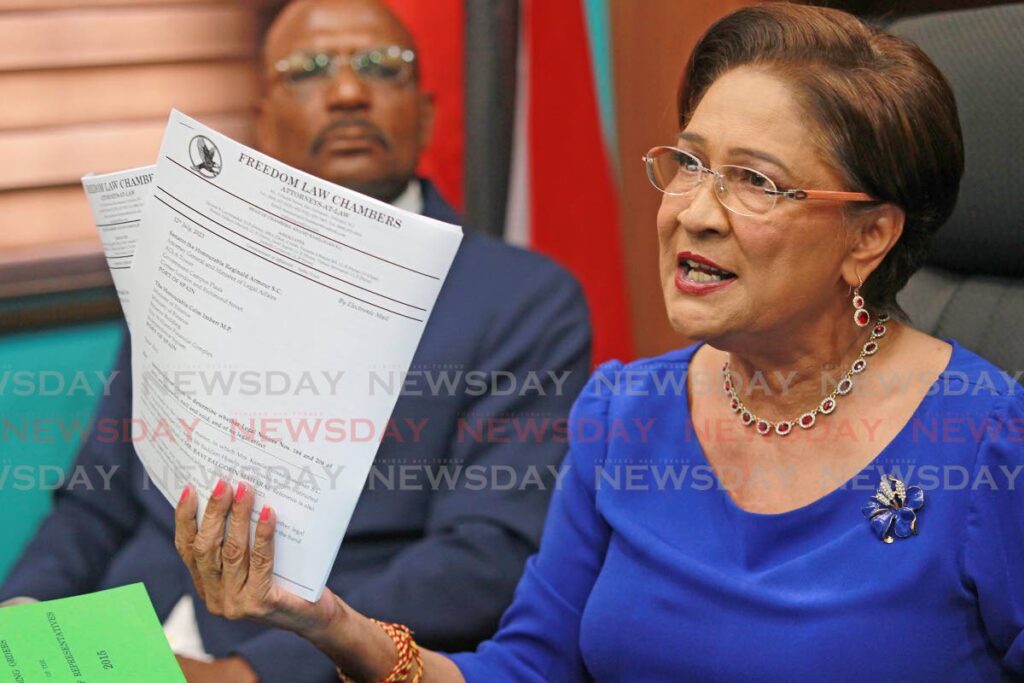Listen carefully to procurement law debate

Last Sunday I came across an article looking into the controversial decision to form the new TT Revenue Authority, swallowing the tax and customs divisions into the new authority as it did so.
The Public Services Association objects, as the TTRA will reputedly have an electronic access control system, replacing numerous human functionaries. That is its job.
But the new organisational architecture will block even the opportunity of the old-fashioned functionaries deciding what a business rateable tax will be.
It's likely the tax officers who came around to your home to tell you what it's estimated value was and what category of property tax you would be in also provide the same service to any business you own. They may offer to make your rateable value lower for a "bonus."
It happens. A revenue officer tried it with me once, through the finance manager of a company whose board I happened to chair. I am told that by making taxation valuations done by the new computer technology this would not be possible.
The PSA has to protect the employment of the workers who will be replaced, as the new organisation looks to be much smaller than the three it will replace. That is their job.
Government wants to save money and increase efficiency. That is their job.
I must admit that I do not understand the PSA’s claim that setting up the new body would be unconstitutional, as there is existing legislation allowing it. Act No 35 of 1971 was used to set up the National Insurance Board (NIB) back in 1972.
The current act, as in the 1971, gives all employees affected the option – within three months – to decide to accept employment.
The new IRA (in 1971 it was to accept employment with the NIB, which many did) offered the right to take a generous voluntary termination of employment (VSEP), or the option to return to the public service.
The mysterious writer of the article brings up some of the points of contention, exactly the same arguments that were made in 1971, based on the expectation that jobs in government service are jobs for life. Guaranteed, no matter what.
What appears in the non-government sector to be sheer arrogance is reflecteTTRAd in the outrage, carried to the Privy Council if not acceded to, of the failure of a government employee to be promoted to the next grade.
Every few months another angry government employee, usually senior, is willing to take up a case of perceived and not granted, "entitlement."
The Court of Appeal remarked, according to the Sunday article: “There is no right to a guaranteed or continued employment by the state or the preservation of ordinary public offices from abolition."
That makes us rethink the position of the service commission, set up to protect state employees from political persecution, but what has evolved since, according to the court, is, “Offices stuffed with political supporters (on contract) at the expense of hiring the best professionals." Makes you think.
And if that weren’t enough, a saga ongoing throughout the week is the drama of the battle for the procurement law amendments.
If you have not read it yet, get an archived copy online of Helen Drayton’s approach to the controversial battle, between two powerful voices, over the amendments to the legislation.
It should be required reading for anyone interested in integrity and/or corruption in public life. Once again, it is logical, rational and extremely well written.
Since she wrote it, the government has announced its intention to proceed and will have made amendments to the very recently enacted legislation, which was debated and passed in Parliament.
This will largely depend on those senators on the Independent benches who have all stated they are waiting to hear what the politicians on both sides have to say before deciding how to vote.
I am hoping that all members of both houses will read Drayton’s exegesis on what the words "procurement" and "exemptions" mean, if they are allowed independent thought and will listen with a critical mind and not approach the whole debate as though wearing an eisegesis hearing aid.
What appears to be the major concern among those in the business community, especially small and medium-sized enterprises which have to use the government's procurement processes, are two things: first, the inordinate length of time it takes to get procurement permission through, and secondly, political favouritism – whereby permission for procurement is not given to the best or most appropriate bid in a government procurement exercise, but to those who pay commissions under the table.
I have been told bribes are not necessarily demanded by the politicians but often by public servants, with or without the knowledge of the politicians.
Sounds like Russia sometimes. But if I understood her article correctly, if recommendations for certain new and improved systems and technologies are implemented, they will prevent this from happening.
Removing the requirement of positive affirmation by Parliament, if you add it all up, will be strongly opposed by those who have been benefiting under the old system, under which a permanent secretary could approve any invoice up to $1 million without question.
I thought that already was the case, so am not sure I appreciate the intricacies of what is being proposed, due to be debated in Parliament yesterday and today. I am looking forward to listening.
Life in TT is never boring!

Comments
"Listen carefully to procurement law debate"